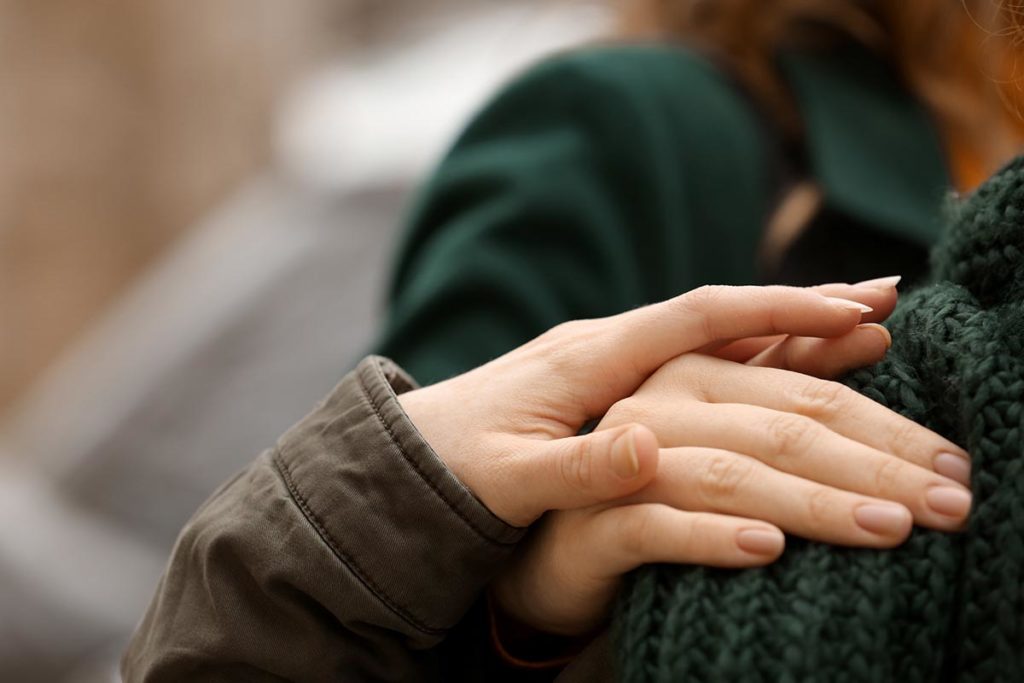Lorelie Rozzano is a guest blogger for Vertava Health. I Love You To Death – Enabling The Addicted Person. Loving an addicted person is like walking through fire, blind-folded. You can’t see where you’re going and it hurts like hell. In response to this pain, the family adopts enabling behaviors. Enabling – rescuing someone from the consequences of their destructive behavior – becomes an act of survival. A first, enabling is largely an unconscious impulse driven by worry, fear, stress and guilt. The enabler’s help results from intense, uncomfortable emotions coupled by a rapid, knee-jerk reaction. There’s a sense of urgency – a life and death matter that needs solving, right now. The person who enables believes they’re helping, but in truth, what they’re really doing, is mood-altering (avoiding uncomfortable emotions). Saying no and setting boundaries with the addicted person, is very difficult and requires support. Because addiction thrives in secrecy and isolation, there often is none. Family members try to navigate the murky waters of addiction alone. The addicted person’s primary purpose is to get and stay high. Their families are the first people they hit up to facilitate this. They know what emotional buttons to push and how to manipulate their friends and loved ones. When not getting their way, the addicted individual ups their game by bullying and becoming abusive – yelling, name calling, swearing, crying, and even threatening to harm themselves, or others. Dealing with an addicted person one on one will wear you out every time. It’s much easier to give in than it is to stand your ground. The addicted person uses a substance to feel better. The codependent, or enabler, enables to stop the pressure and ultimately feel better. Both parties are getting instant relief, creating a longer term misery. Enabling behaviors work in favor, of addiction. By protecting and keeping secrets the addicted person is free to continue using. They will progress deeper into their disease, becoming more damaged than if found out earlier. A really simple question to ask is this. Have I ever lied to protect my addicted loved one? If you answered yes, then you have enabled. When you’re loved one is addicted, your world turns upside down. Love becomes hurt. Happiness turns to sorrow. You feel ashamed, helpless, confused and alone. Watching someone you love disintegrate before your eyes is heartbreaking. Not being able to stop them, leaves you feeling helpless and inadequate. It’s easy to get lost in their illness. You’ll notice how sick your loved one is getting, but did you know you’re getting sick, too? You may not be shoving drugs up your nose, but the things you’re doing, are just as damaging to your health and your family. Addicted people are consumed by their addiction. Enabling people are consumed with the addicted. So how do you know if you’re enabling and being consumed by your loved one’s addiction? Below are five signs to help you identify enabling behaviors. Mental obsession – You go to bed thinking of the addicted person. You wake up thinking of them, and you think of them every minute in between. You’re distracted and unavailable to other relationships. When friends and family talk to you about their day, you bring the subject back to your addicted loved one. You have difficulties focusing on other tasks. Feeling like a victim – You feel angry. You’re resentful. You blame your family for not trying hard enough. You put the needs of the addict, before your own. You feel sorry for yourself and misunderstood. Self–pity is the emotional consequence of feeling like a victim. Self-pity is different than sadness. It’s toxic to one’s soul and to all other relationships. Protecting the addicted person – You believe people are too hard on your addicted loved one. You make excuses for them. You lie to protect them. You lend money and keep their secrets. Helping your loved one makes you feel good. You may even falsely believe you know them better than anyone else. Not listening to family and friends concern – Your family and friends address their concerns with you, but you blow them off. You still believe, in spite of all the mounting evidence to the contrary – you know best. You’ve been accused of giving too much. Instead of welcoming this support you shut them out and draw closer to the addicted person, forming a crippling and dysfunctional dependency on one another. Can’t beat em? Why not join em? – Using mood altering substances or behaviors, to cope. Do you use sleeping pills or anti-anxiety medication to cope? Do you overeat or spend? Are you depressed? Do you have erratic mood swings? Do you yell, or throw things? People who struggle with enabling tend to hold their feelings in until they can’t. Then they come out with a bang, creating remorse and guilt, which starts the cycle of enabling all over again. It’s easy to confuse love with enabling. But when you’re well being is dependent on another – that isn’t love – it’s codependency. If you really want to help your addicted loved one, the best thing you can do for them is get educated and reach out for support. The addicted person has the best chance of overall recovery when the primary enabler is identified and working a program of recovery. When the enabling stops, recovery can and does, occur. If you or someone you know needs help or support, please call this confidential support line for assistance. 844-470-0410
I Love You To Death – Enabling The Addicted Person.


